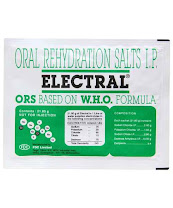Diarrhea/loose motion:
Overview:

IMAGE SOURCE: creativecommons

What is diarrhoea?
We all know this term, right. Diarrhoea is also a topic taught in science subjects so needless to say more about it, let us quickly understand it.
Excretion of the stools or faeces from the bowels is the normal physiological process in the living organism. Any change from its normal or routine pattern is an indication of stomach-upset.
All of us have taken leave from school or work in some ways due to the condition called loose motion, the frequency of the stools is increased so much that we can’t continue our normal routine comfortably. Moreover there is a feeling of discomfort in stomach and the body also becomes weak due to the loss of fluid and minerals from the body. This condition is called diarrhoea.
Let us know diarrhoea in detail:
Diarrhoea is a condition in which the person passes loose or watery stools with an increased frequency which may be caused by any pathogen or some other non-pathogenic cause. The rotaviruses are the most commonly known viruses responsible for causing diarrhoea in children
Most often the diarrhoea is a result of the faulty food habits or overeating. Many of us experience the same when we binge-eat our favourite fast foods without any literal control. Even when our tummy has no left space we push in the extra boluses only because the taste attracts our tongue and we can’t resist. The result is – we end up upsetting our stomach and then the consistency and frequency of the stool changes.
So in other words it can be said that Diarrhoea is an increase in the frequency of watery or loose stools which can affect the general wellbeing if left untreated.
The symptoms of diarrhoea can range from mild to moderate to severe. It may continue up to few days to several days. Diarrhoea continuing for around a month is an alarming situation that needs proper diagnosis and treatment. In HIV/AIDS diarrhoea is often a known classic symptom that lasts for a month or more. Other condition of gastro-intestinal tract such as Irritable Bowel Syndrome is also characterised by frequent stools.
The consequences of diarrhoea are rather serious in the infants and children. It’s been also a major cause of infant mortality in many under developed countries. Under five kids are also affected the most due to diarrhoea and the numbers of diarrhoeal deaths are reported frequently in many countries where sanitation and hygiene are compensated or not adequately established.
Signs and Symptoms of diarrhoea:
The following are the signs and symptoms of diarrhoea:
- Loose stools
- Watery stools
- Increased frequency of the stools (abnormally)
- Mucus like stools
- Discomfort in the stomach
- Abdominal pain
- Bloating or feeling like excess gas is present in the stomach
- Abdominal cramps
- Fatigue or lethargy due to fluid loss from the body
- Nausea or vomiting
- Fever (in case the cause is infectious agent)
See also: Amoebiasis or Amoebic Dysentery
What causes diarrhoea? What are the reasons responsible for changing the consistency of the stool?
Why do the bowels excrete so much fluids and mucus?
CAUSES OF DIARRHEA OR LOOSE AND WATERY STOOLS:
Now let us try to know the possible causes of diarrhoea:
The main cause of diarrhoea is the infection caused by the viruses; the rotavirus being the most common. Bacteria, virus, fungi and protozoa can also cause diarrhoea in the human beings.
Viruses such as Rotavirus, CytomegaloVirus, virus causing Hepatitis etc, can also cause diarrhoea. Recently the novel virus, Covid-19 is also characterised by the symptom of diarrhoea.
Bacteria such as Salmonella, Shigella, Camplyobacter, Clostridium, etc, can cause diarrhoea.
Gastric problems: Indigestion due to consumption of unfit or unhealthy foods
Pre-existing GI tract problems such as Irritable Bowel Syndrome or Inflammatory Bowel Disease etc. also present with diarrhoea.
Some medication such as broad spectrum antibiotics may produce diarrhoea as an adverse or side effect of the medicine.
Lactose tolerance or allergies to particular foods may also cause diarrhoea.
Cancer treatment: Diarrhoea in seen among cancer patients undergoing radiation therapy.
Overuse of laxatives
Alcohol abuse
Problems in absorption of the fluids and nutrients from the bowel.
Diarrhoea can be:
- 1. Acute
- 2. Chronic
Acute diarrhoea has a sudden abrupt onset and lasts for a few days. The cause is mainly the presence of acute gastro-intestinal infection or gastroenteritis. It can be easily treated with prompt treatment of fluid supplements and usage of antibiotics as ordered by the physician.
Chronic diarrhoea is the result of ongoing disease in the body such as Irritable bowel syndrome or lactose intolerance. This is a prolonged condition and can have adverse complications in the future. To avoid any complications, it necessitates the proper continuance of the treatment.
Diagnosis:
The diagnosis can be made based on the patient’s history, present signs, and symptoms. Sometimes Culture test is done to detect the causative agent at the microscopic level. For this stool sample is taken from the patient.
Treatment:
Diarrhoea usually gets cured by home care and fluid supplements. WHO recommended oral rehydration salt or ORS is the most commonly used and effective treatment for diarrhoea.
- It helps the body in restoring the fluids and electrolytes lost due to diarrhoea.
- The main focus is on the supplement of the fluids after every motion. It replenishes the body and provides energy thus helping to relieve fatigue.
- Ensure enough drinks such as juices or clear fluids, buttermilk,
- Take enough bed rest and avoid any rigorous activity.
- Antibiotics may be prescribed in moderate cases and in case the symptoms do not subside after two to three days. This is done to treat any bacterial cause of diarrhoea,
- In cases of severe diarrhoea, the fluids are lost rapidly leading to dehydration. It needs immediate attention and such persons must be hospitalized for better and quicker treatment.
- In the hospital, the doctor treats the person with intravenous fluid therapy along with antibiotic dosages. This aids in maintaining the fluid and electrolyte balance within the blood and body. If left untreated, the patient may develop severe rare complications such as hypovolemic shock, cardiac arrest, or even death.
Home Remedies to get rid of diarrhea:
Prevention:
 |
| Image Source: Pexels |
The best approach to any illness is prevention. Prevent the incidence or prevent the further advancement of the illness to avoid any complications
- Practice handwashing. Hands are the most common source of infections. Nearly half of the GI tract infections are somehow transmitted due to unclean hands.
- Wash hands regularly before and after meals with soap and water.
- Wash hands after using the toilets.
- Drink boiled and cooled water. Boiling kills the microorganisms present in the water if any, and makes it potable and fit for human consumption
- Add probiotics to your foods. They preserve the normal flora or human-friendly bacteria in the intestines to facilitate the normal absorption of the fluids and electrolytes and excretion of the waste from the body
- Drink plenty of fluids. Include fresh juices and hot soups in your diet to maintain adequate hydration of the body.
- If you already have diarrhoea, start taking fluids after each motion to avoid getting dehydrated. Oral rehydration salts are a good choice and every household must keep these sachets pre-available in their medicines boxes. It really comes to relief when you have the sachets on your hand.
- Try to keep the surroundings clean and wash the floors with disinfectants to prevent your kids from getting infected. Kids generally grab things lying on the floors and put them down in their mouths; this can act as an entry of the infective agents into the body.
- Encourage breastfeeding your baby even if it has diarrhoea; this will keep the baby properly hydrated.
- Continue your medications as ordered by the physician, if you are a known case of any chronic illness that causes diarrhoea. Consult your physician for further follow-up before stopping any medications.
- Eat a balanced diet. Avoid eating fast or junk foods that can disturb your tummy’s health.
- Know the foods that trouble your tummy and try to cut them down from the diet menu. This habit helps you stay fit and healthy
Note: This blog post is for educational and informational purpose only. It is not a substitute for any medical advice, consultation or treatment. Please see your doctor in any case.



Comments